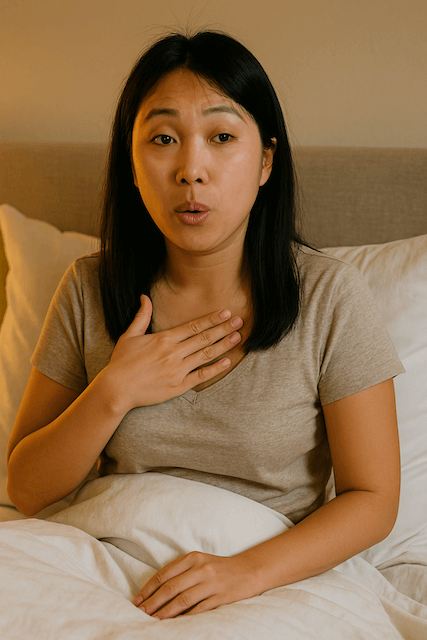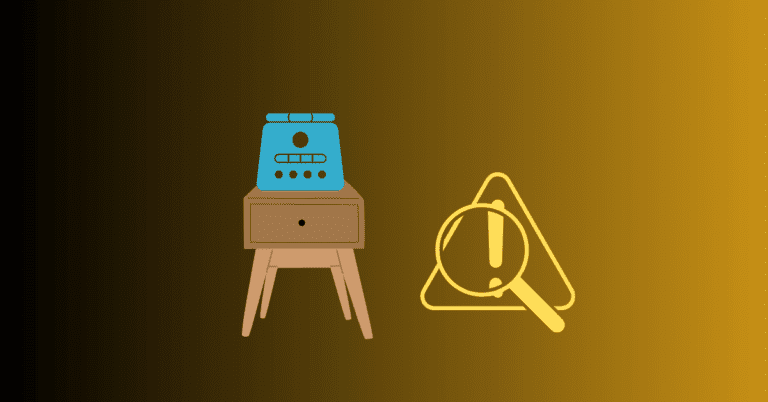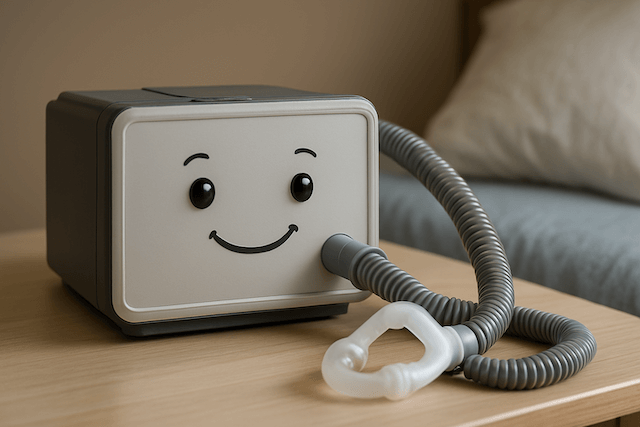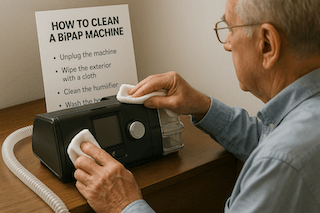Should You Use Distilled Water for a CPAP?
Jeremy Smith is a long-term CPAP user and sleep apnea advocate. After being diagnosed with severe obstructive sleep apnea, he created ByJeremySmith.com to help others navigate CPAP therapy through personal stories, gear reviews, and practical advice.
For people like me who use a CPAP machine to manage sleep apnea, one of the key components of the therapy is the humidifier attached to the device.
The humidifier helps prevent dryness and irritation in the airways by adding moisture to the pressurized air.
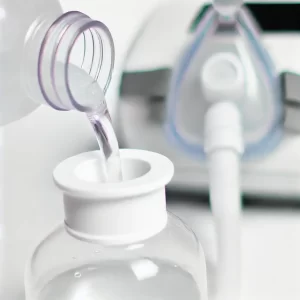
But when it comes to filling the humidifier, many users wonder: Should you use distilled water for your CPAP?
In this article, we’ll explore the importance of using distilled water, how it affects your machine’s performance, and some useful travel tips for CPAP users.
Why Distilled Water Is Recommended for CPAP Machines
Distilled water is highly recommended for use in CPAP humidifiers because it is free from impurities, minerals, and other contaminants that can be present in tap water. Here’s why it’s important:
Preventing Mineral Buildup
Tap water often contains minerals like calcium, magnesium, and iron. When heated in the humidifier chamber, these minerals can form a white, chalky residue known as scale.
The amount of scale in your water is going to be dependent on where you live.
Over time, this buildup can clog the humidifier, reducing its efficiency and potentially damaging the machine.
Reducing the Risk of Bacterial Growth
Distilled water is free of harmful microorganisms and chemicals that could lead to bacterial or mold growth inside the humidifier. Using non-distilled water can increase the risk of introducing bacteria into the air you breathe, potentially causing respiratory issues.
Extending the Life of Your CPAP Machine
Using distilled water helps keep your CPAP humidifier and machine in good working condition by preventing mineral deposits and microbial contamination. It reduces the need for frequent cleanings and can extend the life of your device.
What Happens if You Don’t Use Distilled Water?
While it may be tempting to use tap water or bottled water in your CPAP humidifier, there are several reasons why this is not recommended:
Mineral Buildup
As mentioned, tap water contains minerals that can accumulate in the humidifier chamber over time, leading to scaling. This not only affects the machine’s performance but can also make it harder to clean.
Risk of Contamination
Regular tap water can contain bacteria, chemicals, or impurities that are not safe to breathe in when vaporized. Using anything other than distilled water could result in respiratory irritation or infection.
Shortened Machine Lifespan
Consistently using tap or bottled water in your CPAP machine can shorten its lifespan by causing mineral deposits to form in the humidifier. This may lead to higher maintenance costs or the need for early replacement of parts.
In case of an emergency or if distilled water is unavailable for a short period, it is better to use bottled water rather than skipping the humidifier altogether but always return to distilled water as soon as possible.
How to Clean Your CPAP Humidifier
Whether you use distilled water or not, regular cleaning of your CPAP humidifier is essential to maintain its hygiene and efficiency. Here’s how to clean your humidifier properly:
- Empty the Humidifier Daily: Always empty any leftover water from the humidifier each morning to prevent bacterial growth.
- Wash the Chamber: Clean the humidifier chamber with warm, soapy water at least once a week. Use a mild dish soap, and rinse thoroughly.
- Disinfect Regularly: Once a week, disinfect the humidifier by soaking it in a mixture of one part white vinegar and three parts water for about 30 minutes. This helps kill any bacteria or mold.
- Let It Air Dry: After washing and disinfecting, allow the humidifier to air dry completely before refilling it with distilled water.
Regular cleaning will help keep your CPAP machine running smoothly and prevent any potential health risks.
Travel Tips for CPAP Users
When traveling with a CPAP machine, one of the common concerns is how to handle the water for the humidifier. Here are some helpful travel tips for CPAP users to ensure you stay compliant with your therapy, even on the go:
Bring Distilled Water with You
If you’re traveling by car or to a location where you’ll have easy access to luggage, consider bringing a small bottle of distilled water with you. Many pharmacies or grocery stores sell distilled water in travel-friendly sizes, which you can pack in your luggage.
Buy Distilled Water at Your Destination
If you’re flying or traveling light, you can often find distilled water at most convenience stores, grocery stores, or pharmacies near your destination. Be sure to buy it as soon as you arrive to ensure you can fill your humidifier each night.
Use Bottled Water in an Emergency
If distilled water is not available at your destination and you only need a temporary solution, you can use bottled water for one or two nights. However, return to using distilled water as soon as possible, and be sure to clean your humidifier thoroughly afterward to prevent mineral buildup.
Consider a Portable CPAP Machine
If you travel frequently, consider investing in a travel CPAP machine like I did.
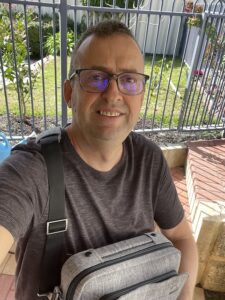
CPAP travel machines don’t require any water. They are designed to be compact and more convenient for travelers while still providing the humidification you need for comfort during your sleep apnea therapy.
TSA Regulations for CPAP Water
When flying, distilled water is considered a medical supply, so it’s allowed in your carry-on luggage in amounts greater than the standard 3.4-ounce limit.
Inform the TSA agents that you’re carrying distilled water for medical purposes, and they’ll screen it separately.
Conclusion: Why Distilled Water Is Important for Your CPAP
Using distilled water in your CPAP machine is essential for maintaining the hygiene and functionality of your device. Distilled water prevents mineral buildup, reduces the risk of bacterial contamination, and helps extend the life of your CPAP machine.
If you’re traveling, plan ahead by bringing distilled water or finding it at your destination to ensure you stay compliant with your sleep apnea therapy. Alternatively, purchase a CPAP travel machine.
By following these tips and using the right water for your CPAP, you’ll ensure a more comfortable and effective treatment for your sleep apnea.
Do you use distilled water in your CPAP machine or do you find it too much hassle? Let me know in the comments below.
Disclaimer: The content on this blog is for informational and educational purposes only and is not a substitute for professional medical advice. Always speak with your doctor or sleep specialist before starting, stopping, or changing any treatment or therapy related to sleep apnea or CPAP use.
